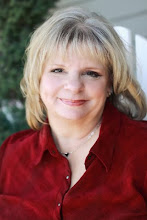
As they mature and become sexually active, more young adults face serious health risks.
Most face these risks with too little factual information, too little guidance about sexual responsibility, and too little access to health care.
Meeting young adults' diverse needs challenges parents, communities, health care providers, and educators. Despite urgent needs, program efforts have been slight and slowed by controversy.
One-fifth of world population is between ages 10 and 19. Young people today marry later, and more start sex before marriage. Thus they face more risk of unwanted pregnancy and sexually transmitted diseases (STDs).
In developing countries 20% to 60% of young women's pregnancies and births are unintended, most coming sooner than planned. Pregnancy puts young women's health at risk, through childbearing or unsafe abortion.
Increasingly, early parenthood means lost education as well, with lifelong loss of earnings. Half of those infected with AIDS-causing HIV are under age 25. The help that young adults need to avoid these risks varies.
Some young people are not yet sexually active. They need support and skills to postpone starting sex.
Some suffer from sexual abuse. They need protection and care. Some start sex before marriage, and some change sexual partners several times before they marry. They need help to abstain from sex or use condoms to prevent pregnancy and STDs. Many others are married and need much the same health and family planning services as other married couples. Sex education and reproductive health programs for young adults often face opposition, but research shows that these programs do not lead to more frequent or earlier sex, as opponents fear. To win public support, programs must work with parents and within community norms.
At the same time, programs must advocate new social norms that protect the health of young adults.
Current norms reward boys but punish girls for having sex; they glamorize irresponsible sex in the mass media but reject young people's natural interest in sexuality. Until these values change, programs for young adults will fight an uphill battle to encourage responsible behavior and provide adequate care.
For family planning services, STD treatment, and prenatal care, most young adults must go to the same clinics available to older people. Only a few hospitals and nongovernmental organizations have set up special clinics or service hours for young people. Many different outreach programs have been tried, often employing young adults to talk with their peers and sometimes to distribute condoms. In a few US schools, clinics offer some reproductive health services along with other care; a few schools provide condoms.
Young adults need programs that are compassionate, learn their needs, earn their trust, go where they are, and speak their language.
Horizon Family Solutions
Dore E. Frances, M.A.
Educational Consultant
(866) 833-6911
(541) 312-4422


